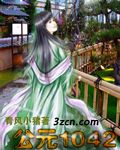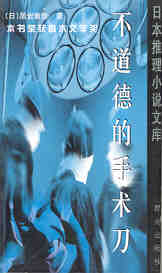04道德经英译本85种-第113部分
按键盘上方向键 ← 或 → 可快速上下翻页,按键盘上的 Enter 键可回到本书目录页,按键盘上方向键 ↑ 可回到本页顶部!
————未阅读完?加入书签已便下次继续阅读!
borders; walls; fortresses; or other emblems of territory are seen from this distance。 In such a setting; the Cosmos is seen to lack a sense of power; and the superficial paradigm of the universe as a mechanical system is annihilated and transformed: things in motion appear to rest in stillness; while the Whole; in this suspension; seems to dance with small; unceasing movement。 But perhaps the most significant part of the meditation is the return to earth; where the perspective thus received is brought back into contact with a chair; a room; and light through a window。 It is here; rather than in the 〃space flight〃 that the transformation is revealed; it is back on earth where the discovery occurs that; as Lao Tzu says; 〃pure strength rests below; and absorbs what lies above。〃
62
Tao is the treasure of all being。
Those who accord with it
Are embraced by it。
And for those who wander;
Its arms remain open。
Eloquence may fetch its price;
Heroic deeds may garner glory;
But only at the brutal cost
Of a person抯 deepest self。
Is fame worth such a sacrifice?
What if you were called to command
At the coronation of a king…
If the three imperial generals
Marched in state before you;
Leading out majestic stallions;
To confer on you the jade emblem
Of the highest office?
Could such opulence ever equal
The inner gift of simply sitting
Where the Tao resides?
Does this perhaps explain the truth
Of what the ancients have told me?
That when the Tao is your treasure;
You will always receive what is truly yours;
That every error can be corrected;
And that the treasure of Nature
Is already within you。
This verse contains a life…affirming message: there is no such thing as a point of no return; at or beyond which the treasure of Tao is forever lost。 However far ego may have made you wander; into whatever dark dead end it might have brought you; return to the treasure is always possible; as long as you have the inner ability to make a choice。 Thus; 〃every error can be corrected;〃 for it is in that simple moment of decision and commitment that the open embrace of the Cosmos is rediscovered。
63
Act without effort;
Work but don抰 grind;
Savor the tasteless;
See greatness in smallness;
And the multitude in the few。
Answer evil with the firmest Modesty;
Resolve difficulty at the very beginning…
Before it becomes difficult。
For enduring greatness is achieved
In attending to incipient detail。
Nature transforms complexity:
Its greatness depends
On its infinitesimal precision。
Just so; the Cosmic Sage:
It never strives toward greatness;
It simply accomplishes it。
It is not bound by promises;
Nor moved by faith。
In the easy is the difficult surpassed。
The Sage treats the illness
Before the symptoms arise。
Thus is struggle prevented;
And heroes made extinct。
64
Affairs in balance are easily arranged。
Trouble that抯 but faintly manifest
Is resolved through preparation。
Fragile matter is quickly broken;
Small force is easily scattered。
Manage trouble before others see it…
That is; before it becomes troublesome。
The problem that you can barely get your arms around
Grew like a tree from the tenderest sprout。
A tower of trouble rises from a mere hole in the ground。
That march of agony; a thousand miles long;
Began where your feet touch the Earth。
Live by force and you will be destroyed by it。
Take things in your grasp; and they will slip away。
The sage relies on unforced action;
And this upholds the dignity of his effort。
He doesn抰 clutch at success;
Therefore; he never fails。
Others seem to collapse in failure
At the very threshold of success;
Yet he is humble and cautious
Both at the end and the beginning:
Thus are his affairs brought safely to completion。
Therefore; the sage monitors desire;
Retreats from attachment;
And abandons the accumulation of learning。
Through dropping his excess;
He returns to his essence。
And then; insensibly and effortlessly;
He helps others to do the same。
He does it without a breath of bluster;
For he never presumes upon
The living truth of Nature。
This verse is notable for containing what is perhaps the most famous; and therefore the most misinterpreted; expression from the Tao Te Ching (and perhaps from all of Chinese philosophy); which is usually translated as:
The journey of a thousand miles
Begins with a single step。
As I worked with this couplet and the other metaphors from that second stanza; the question arose: 〃does Lao Tzu really mean to glorify the tree and the tower; and to have us pursue the 搕housand mile journey??It seems; from the context of the verse itself and the rest of the Tao Te Ching; that the answer to this question would be; in fact; 〃no。〃 If trouble is best managed 〃before it becomes troublesome;〃 then we are clearly being asked to perceive the grown tree; the tower; and the long journey; as the metaphorical consequences of 〃unmanaged trouble。〃 This tilt in perspective gives the poem a pragmatic message; which is consistent with Lao Tzu's insight from other verses; particularly with regard to the metaphor of the long journey。
In other places; Lao Tzu reminds us that we can know the whole world without leaving our doorway; and that the outer wanderer too easily gets trapped in a net of attachment。 Thus; Lao Tzu would consider the 〃long journey〃 to be the consequence of having failed to identify and retreat from the many short and early steps of ego。 This is why the follower of Tao 〃monitors desire 'and' retreats from attachment〃: so that his self…awareness prevents the necessity of taking any 〃long journeys〃梡ointless and dangerous odysseys of seeking and yearning。 The farther we wander; the more do we become attached to the saga; until we are trapped in a net of seeking。 This leads to increasing misdirection and suffering; so that the way of return is made ever more difficult; as Odysseus himself discovers in Homer's epic poem。
There is another crucial point being made in this verse; which is particularly significant to our time and culture; and it is about time and completion。 Lao Tzu warns us of the danger of 〃collapse in failure〃 at the very brink of success; and he stresses the importance of humility and caution; especially near the end of a project or undertaking。 For this is where the ego's urge for completion is most likely to become careless or obsessive。
65
There were those of old who knew the Way;
And loved it in their daily lives。
They did not preach enlightenment;
Or practice deceit among the people。
They lived well because they lived simply。
Now with trickery and brilliance
Are the people governed;
And yet with the utmost difficulty!
A country ruled with cleverness
Is a country gone to waste。
Govern your country in simple innocence;
And it will be blessed among nations。
Remaining aware of the alternatives;
Our conduct may be correctly guided。
Holding fast to this guiding awareness
Is the action of natural virtue。
Natural virtue comes from clarity…
The resonant clarity of the Cosmic Source。
It draws us back within; to the Original Essence…
The great Harmonic; which may be touched
Every day in loving gratitude。
People are not by nature stupid and submissive; as some would make them out to be。 This is why it is so difficult to govern them with 〃trickery and brilliance;〃 because they can inwardly read deceit and corruption in a leader; even if they appear to go along with the program。
〃A country ruled with cleverness〃 is one whose leaders have set themselves above and apart from the people。 It is as if such leaders parade their own enlightenment in the ways of governing before the people (a very common practice in election campaign speeches); to prove their fitness to rule。 Inevitably; such nonsense will be exposed; because it traps itself in its own complex net of lies。
Lao Tzu offers a more practical and resonant approach to leadership; which accords with his teaching on personal governance: 〃remaining aware of the alternatives。〃 It is to be noted that he does not speak in terms of 〃remaining aware of the opposites;〃 because he is trying to lead us past an apparent paradox。 To live well (and to lead well) by living simply is not to reduce every course of action to diametrically opposed paths; but to nurture one's own inner ability to feel and balance an entire range of alternatives。 For when every decision is reduced to one of two opposing options (the Republican way or the Democratic way; to attack or to resort to diplomacy; to tax and spend or to offer tax breaks); a broad spectrum of possibility is ignored。 It is within that very spectrum that the correct solution usually lies; and not at the polar extremes of choice。 When we are reduced to governing from within the realm of opposites; then trickery and manipulation are required to divert the people from following the way of common sense and inner clarity。 Lao Tzu is asking the modern leader; 〃why waste or repress resources that will make your job infinitely easier?〃 For when the Sage is allowed to lead; then much of the work of governing tends to happen by itself; through the 〃natural virtue〃 of each individual。 This process leads the nation to the harmony in which true leadership spontaneously occurs; this is the 〃simple innocence〃 of which the poet speaks。
66
Breadth of river; depth of sea…
How is it that they seem to rule the world?
Because they can infiltrate a kingdom;
Or plumb the depths of a ravine;
And give life to the hundred fertile valleys。
In leading others; learn first to follow。
In speech; let your words find their own level。
To lead the people; learn to nourish them。
Let the Sage be your model:
It dwells in leadership
Without the oppression





